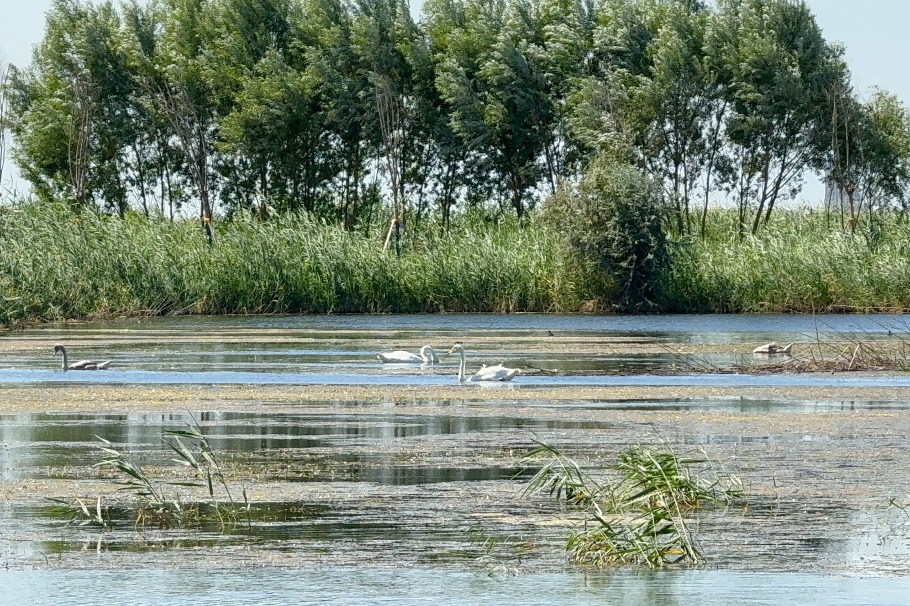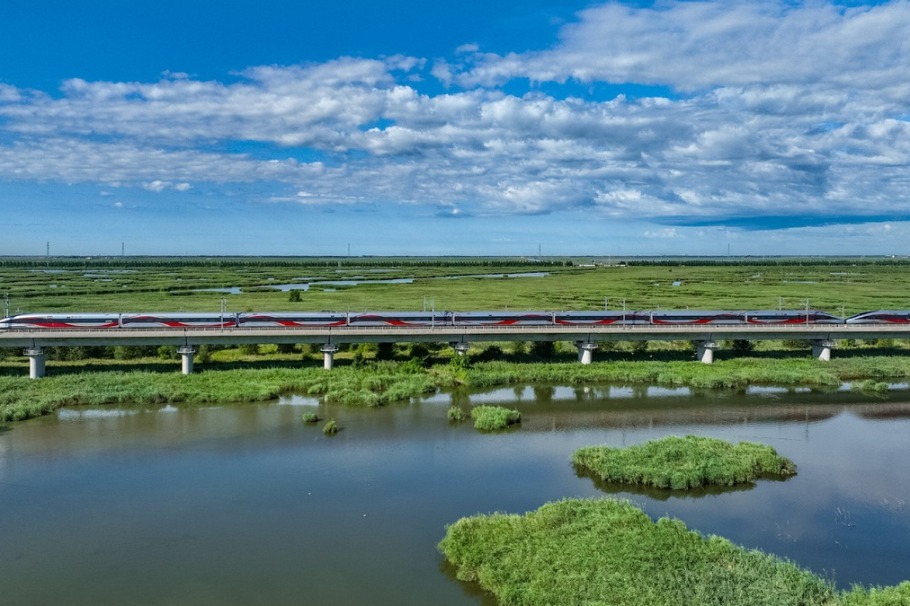New hardier rapeseed boosts yields
Beiyayou 1 thrives in high-latitude areas with short growing seasons

Chinese researchers have developed a new variety of rapeseed that can withstand the harsh climate of northern Asia and significantly boost yields and oil content, according to the Chinese Academy of Agricultural Sciences.
The new variety, named Beiyayou 1, was bred through a collaboration between the Oil Crops Research Institute, CAAS, and Inner Mongolia Academy of Agricultural and Animal Husbandry Sciences.
It is one of five new varieties designed for high-latitude areas with short growing seasons. In demonstration plots, it was sown on May 6 and harvested in late August.
Dun Xiaoling, a researcher at the institute, said Beiyayou 1 can complete its growth cycle in just 100 days, marking a breakthrough for northern Asia, which includes parts of Inner Mongolia, the Xinjiang Uygur autonomous region, Heilongjiang province and Jilin province.
These regions have large areas of unused land, but short frost-free periods and relatively low accumulated temperatures have made it difficult to grow existing rapeseed varieties, limiting industry development.
Test yields for Beiyayou 1 reached 4.27 metric tons per hectare, an increase of 93 percent over the average yield of locally grown varieties. The new variety has also shown strong cold tolerance, Dun said.
Launched in 2024, the research project aims to boost domestic oil crop production and diversify imports. The team focused on land north of the 45th parallel, which has a frost-free period of fewer than 100 days.
"However, there was a lack of a precise method to assess how rapeseed varieties would adapt to the unique ecological conditions of the region," Dun said.
To overcome this challenge, the North Asian rapeseed and soybean science and technology innovation center was established.
Using an approach that combined biotechnology and ecological breeding, researchers created a new model for cultivating oil crops in cold, high-latitude regions.
Biotechnology tools helped accelerate the process of creating new plant varieties.
"Instead of waiting for multiple growing seasons, we can use techniques such as doubled haploid technology to create a genetically pure plant line in just one generation," Dun said.
The breeding method is based on the idea that a plant's success depends heavily on its environment, ensuring new varieties are tested extensively in the regions where they are meant to be grown.
In 2024, the team evaluated more than 8,000 doubled haploid lines of rapeseed in Ergune, Inner Mongolia. From this group, they identified six superior parent lines with traits including an ultrashort growth period, high yield, high oil content and disease resistance.
Those lines were then used to create 17 new hybrid combinations for high-latitude variety trials. Five of them were featured in a display trial, including Beiyayou 1, Dun said.
The breakthrough may help overcome a critical seed shortage that has long hindered oilseed cultivation in northern Asia.
"The project seeks to establish Inner Mongolia as a hub for North Asian oilseed production technology," she said.
zhaoyimeng@chinadaily.com.cn





































